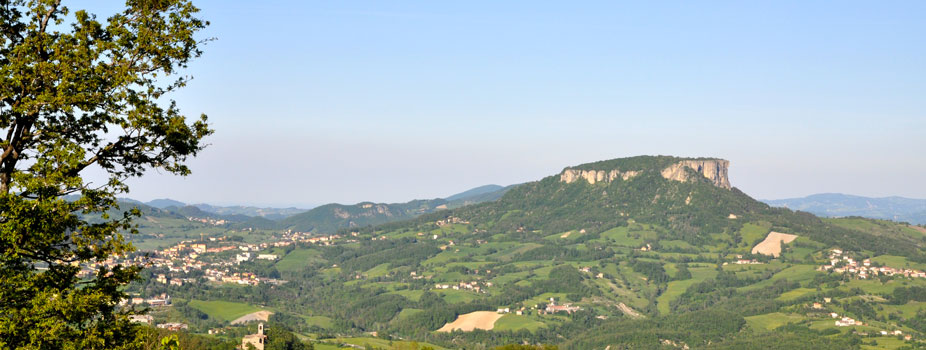Pietra plays a magnetic attraction on the inhabitants of Castelnovo, which in the local dialect is called “mal of Preda” (the sickness of the Pietra): a sort of nostalgia and obsession for this place, which in popular legends is always the place for magic and supernatural events.
Beneath the Pietra cliff there is a sanctuary, where the effigy of the Madonna del Latte (holy virgin of Milk) is worshipped since XV: this veneration is very important in the culture of Castelnovo. Going to the sanctuary of the holy virgin, here called “la Madonnina”, used to be a real pilgrimage: pilgrims walked – often barefooted – from Castelnovo up to the sanctuary, and after the prayer they used to walk to the top of the Pietra. In the sanctuary there were many precious and ancient ex voto (silver hearts, paintings…), but only few are left after the heavy restorations of the 1940s.
People here have always hang out at Pietra, and even today every place along the old trails has its own name (the hermit cave, the almond tree orchard, the horse head). When the parking had not yet been built, going to the Pietra used to be a walk through the Bismantova countryside: still today, this is the best way to approach the Pietra, walking along the ancient trials from Castelnovo and the little hamlets of the area.
In times when people did not have many options to travel and go elsewhere, for the inhabitants of Castelnovo, Pietra used to be an extraordinary place for meeting, escape, prayer and contemplation of beauty.
In Castelnovo the Pietra has always been a family matter, and the love for it and the habit to hang out there was passed by generation by generation. Nowadays people have more time and reReferences, and this tight and authentic relationship is at risk. The Pietra is now perceived through culture, sport, science, tourism: but this peculiar, mysterious and familiar feeling for the Pietra should be kept alive.
(edited by Arch. Chiara Dazzi. Thanks to Prof. Umberto Casoli)

